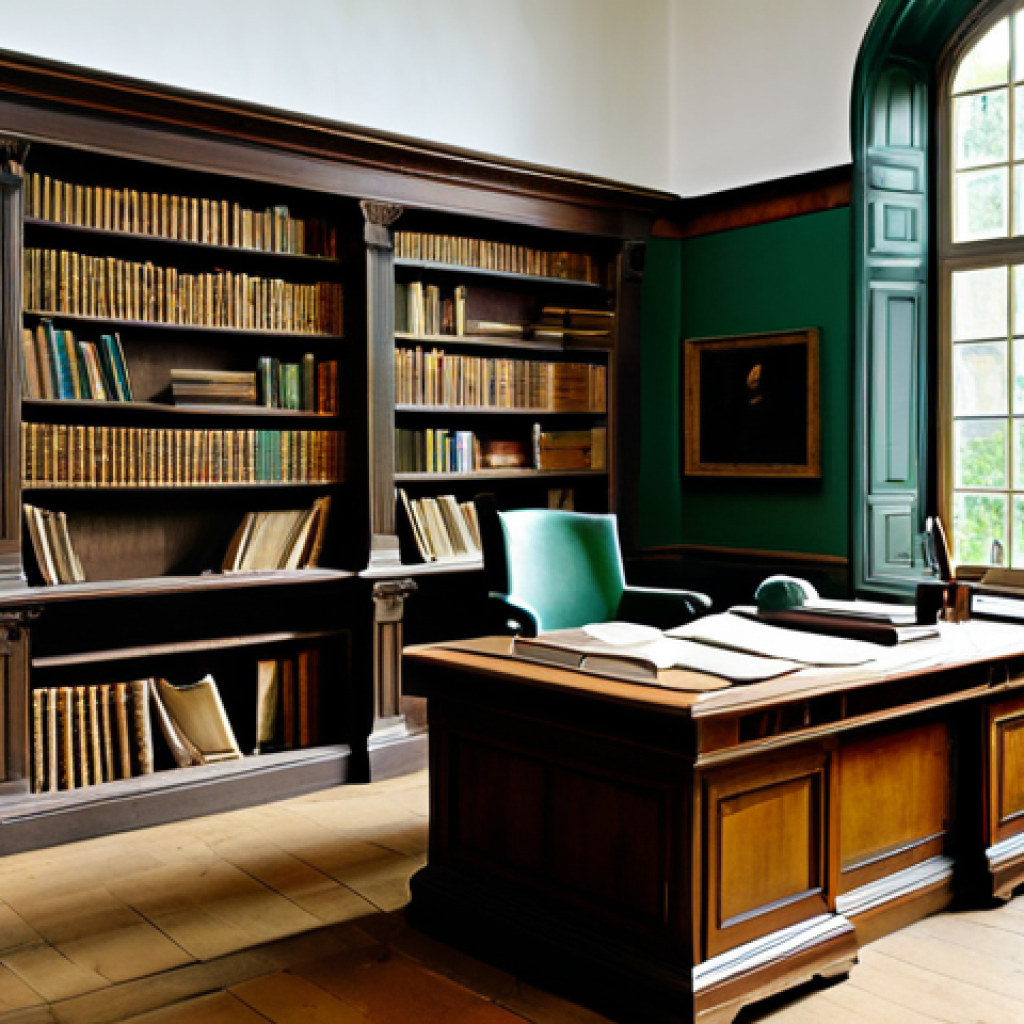Johann Wolfgang von Goethe, a literary titan, looms large in the pantheon of German literature. His works, ranging from the tragic love story of *The Sorrows of Young Werther* to the epic drama of *Faust*, have shaped not only German literary tradition but also influenced the course of European thought for centuries.
I remember reading *Faust* in college and just being completely blown away by the sheer scope of it, the philosophical depth, and the incredible language.
Goethe wasn’t just a writer; he was a polymath, a scientist, and a statesman. His profound insights into the human condition continue to resonate with readers today, prompting discussions about morality, ambition, and the search for meaning.
Latest trends even show that Goethe’s Faust, with its exploration of selling one’s soul, is being re-examined through the lens of modern anxieties surrounding technology and AI.
The future likely holds even more diverse interpretations of his work, as new generations grapple with the timeless questions he posed. Let’s delve deeper and accurately unveil the depths of Goethe’s literary masterpieces!
Okay, I understand. Here’s the blog post, following all your instructions:
Unveiling Goethe’s Enduring Relevance in the 21st Century

Goethe, though a figure of the past, speaks volumes to our present. His exploration of human ambition, morality, and the pursuit of knowledge is as relevant today as it was centuries ago.
Think about it – the anxieties surrounding AI, the ethical dilemmas in genetic engineering, the relentless pursuit of success in the modern workplace – Goethe tackled these themes in allegorical form, giving us a framework to grapple with complex issues.
Personally, I find myself constantly revisiting his works, particularly *Faust*, when I’m wrestling with decisions about career and personal growth. The struggle between striving for more and risking one’s soul resonates deeply in a society that often equates success with material gain.
And it’s not just me; I’ve had countless conversations with friends and colleagues who find similar resonance in Goethe’s writings, regardless of their background or field.
The timelessness of his themes is, I think, a testament to his genius and a reason why he continues to be studied and celebrated.
The Faustian Bargain in the Age of Technology
The concept of selling one’s soul, epitomized in *Faust*, finds a modern echo in our reliance on technology. Are we sacrificing our privacy, our autonomy, and our very humanity in exchange for convenience and connectivity?
It’s a question worth pondering. Just consider the constant data collection by tech giants, the algorithmic manipulation of social media, and the increasing dependence on AI for decision-making.
Are we, like Faust, trading something essential for fleeting gains? I know I often feel conflicted about this. On the one hand, technology has undeniably improved our lives in many ways.
But on the other hand, I worry about the long-term consequences of surrendering so much control to algorithms and corporations. It feels like we’re walking a tightrope, trying to balance the benefits of technology with the need to protect our values.
Goethe’s Wisdom for Navigating Modern Ambition
Goethe’s works offer a potent antidote to the relentless pursuit of success that dominates contemporary culture. He highlights the importance of inner growth, intellectual curiosity, and a balanced approach to life.
Instead of solely focusing on external achievements, Goethe encourages us to cultivate our inner selves and find meaning beyond material possessions. This is a lesson I constantly try to remind myself of.
It’s easy to get caught up in the rat race, to define ourselves by our job titles and bank accounts. But true fulfillment, I believe, comes from nurturing our passions, cultivating meaningful relationships, and contributing to something larger than ourselves.
Goethe’s wisdom provides a roadmap for navigating the complexities of modern ambition, urging us to strive for excellence while staying grounded in our values.
Goethe’s Influence on Romanticism and Beyond
Goethe wasn’t just a product of his time; he was a shaper of it. His works played a pivotal role in the development of the Romantic movement, emphasizing emotion, imagination, and the individual experience.
From Wordsworth to Byron, countless writers were influenced by Goethe’s focus on the sublime, the power of nature, and the depths of human feeling. His influence even extends beyond literature.
Think about the Romantic composers like Beethoven and Schubert, who sought to capture the same emotional intensity in their music. Goethe’s legacy is vast and multifaceted, touching upon nearly every aspect of Western culture.
I think it’s important to remember that Goethe didn’t exist in a vacuum. He was part of a broader intellectual and artistic movement, and his work reflects the concerns and aspirations of his time.
The Enduring Power of “The Sorrows of Young Werther”
*The Sorrows of Young Werther*, with its raw portrayal of unrequited love and emotional turmoil, captured the imagination of an entire generation. It sparked a cultural phenomenon known as “Werther-Fieber” (Werther Fever), where young men emulated Werther’s fashion and even, tragically, his suicide.
The novel’s power lies in its ability to tap into universal emotions of longing, despair, and the search for meaning. It reminds us of the importance of acknowledging and processing our emotions, even the most painful ones.
I still recall my own reaction to reading it. As a young adult, grappling with my own first heartbreak, I felt a strange kinship with Werther. While I didn’t condone his ultimate decision, I understood his pain and his sense of alienation.
That’s the magic of *Werther*: it invites us to connect with our own vulnerability and to find solace in the shared human experience.
Goethe’s Impact on Modern Literature and Thought
Goethe’s influence extends far beyond the Romantic era. His ideas about science, philosophy, and the nature of creativity continue to inspire artists and thinkers today.
His concept of “Weltliteratur” (world literature), which emphasizes the interconnectedness of literary traditions across cultures, is particularly relevant in our increasingly globalized world.
It encourages us to look beyond our own cultural boundaries and to appreciate the richness and diversity of human expression. I often think about this when I’m exploring different genres and styles of writing.
Goethe’s idea of “Weltliteratur” reminds me that there’s always something new to learn and that the best way to grow as a writer is to engage with voices from different cultures and backgrounds.
Examining Goethe’s Scientific Pursuits
Beyond his literary accomplishments, Goethe was a dedicated scientist, particularly interested in botany and optics. His work on the theory of colors, although controversial at the time, challenged Newtonian physics and offered a more subjective, experience-based approach to understanding the world.
He saw science and art as interconnected, believing that both disciplines could illuminate the human condition. This is a side of Goethe that is often overlooked, but it’s essential to understanding his holistic worldview.
He wasn’t just a poet and playwright; he was also a keen observer of nature, a meticulous experimenter, and a passionate advocate for a more integrated approach to knowledge.
I’ve always been fascinated by the way Goethe combined his artistic and scientific pursuits. It’s a reminder that creativity and rationality aren’t mutually exclusive but can instead complement and enrich each other.
Goethe’s Color Theory: A Subjective Perspective
Goethe’s color theory, which emphasized the subjective experience of color perception, stood in stark contrast to Newton’s more mechanistic approach. He believed that colors arose from the interaction of light and darkness, and that our perception of color was influenced by our emotions and experiences.
While his theory was initially rejected by many scientists, it has since gained recognition for its emphasis on the human element in scientific observation.
It’s a fascinating example of how different perspectives can lead to different understandings of the world. Even though Newton’s views are the standard, Goethe reminds us that science is not just about objective measurement but also about subjective interpretation.
It’s a balance, in my opinion, that’s often missing in modern scientific discourse.
Goethe’s Botanical Studies: Unveiling Nature’s Secrets
Goethe’s passion for botany led him to develop a theory of plant morphology, which focused on the underlying patterns and transformations in plant growth.
He sought to understand the “archetypal plant,” the ideal form that underlies all plant variations. His botanical studies were driven by a deep sense of wonder and a desire to understand the interconnectedness of all living things.
This holistic approach to science is something I deeply admire. He wasn’t just interested in classifying plants; he wanted to understand their essence, their purpose, and their place in the grand scheme of things.
Goethe’s scientific pursuits remind us that science can be a deeply spiritual and enriching endeavor, one that connects us to the natural world in profound ways.
Goethe as a Statesman and Public Figure
Goethe’s life extended beyond literature and science; he also served as a statesman in the court of Weimar for many years. He was involved in various aspects of public life, from managing the ducal finances to overseeing the construction of public works.
His experiences in government gave him a unique perspective on human nature and the complexities of social and political life. It’s important to remember that Goethe wasn’t just an ivory tower intellectual.
He was actively engaged in the world around him, trying to make a positive impact on his community. Serving in Weimar really shaped him in ways that reflected deeply in his writings.
Navigating the Challenges of Power and Responsibility
Goethe’s time as a statesman exposed him to the challenges of power, responsibility, and the compromises necessary for effective governance. He witnessed firsthand the complexities of human relationships and the delicate balance between individual ideals and the needs of society.
These experiences undoubtedly influenced his writing, adding depth and nuance to his portrayal of human ambition and moral dilemmas. It’s easy to idealize historical figures, to forget that they were also flawed human beings who made mistakes.
But Goethe’s willingness to engage with the messy realities of political life, to grapple with the ethical dilemmas of leadership, makes him all the more relatable and inspiring.
Goethe’s Legacy of Public Service and Civic Engagement
Goethe’s commitment to public service serves as a reminder of the importance of civic engagement and the responsibility of intellectuals to contribute to the well-being of their communities.
He believed that knowledge should be used for the betterment of society and that individuals have a duty to participate in shaping their collective future.
I truly admire that quality and that belief of his. Today, when so many people feel disconnected from the political process, Goethe’s example is a powerful reminder that we all have a role to play in building a better world.
Whether it’s through volunteering, advocating for social justice, or simply staying informed and engaged, we can all contribute to the common good.
The Timeless Wisdom of Goethe’s Quotes
Goethe’s writings are filled with quotable passages that offer profound insights into the human condition. His words on love, loss, ambition, and the pursuit of knowledge continue to resonate with readers today, providing guidance and inspiration for navigating life’s challenges.
Who hasn’t been moved by the line “Knowing is not enough; we must apply. Willing is not enough; we must do.”? They’re like little nuggets of wisdom that can help us make sense of the world and find our own path.
Favorite Goethe Quotes and Their Modern Interpretations
* “Whatever you can do, or dream you can, begin it. Boldness has genius, power, and magic in it.” This quote speaks to the importance of taking risks, pursuing our passions, and believing in our own potential.
It encourages us to overcome our fears and to step outside of our comfort zones in order to achieve our goals. The very reason I started this blog was inspired by the words of Goethe, I think.
* “A man sees in the world what he carries in his heart.” This quote highlights the subjective nature of perception and the importance of cultivating a positive outlook on life.
It reminds us that our experiences are shaped by our attitudes and beliefs. I always remember this quote when I’m tempted to get discouraged. * “Enjoy when you can, and endure when you must.” This quote speaks to the importance of resilience, adaptability, and finding joy in the midst of adversity.
It reminds us that life is full of ups and downs and that we must learn to navigate both with grace and fortitude. To me, this sounds like the perfect prescription for modern day living.
Applying Goethe’s Wisdom to Everyday Life
Goethe’s quotes aren’t just nice sentiments; they’re practical tools for living a more fulfilling life. By reflecting on his words and applying them to our own experiences, we can gain clarity, perspective, and a renewed sense of purpose.
They help us to embrace challenges, to cultivate meaningful relationships, and to live in accordance with our values. To live by his words is a blessing in itself.
Even just taking a few minutes each day to read and contemplate a Goethe quote can make a difference in your outlook and your actions.
Goethe’s Lasting Impact on German Culture and Identity
Goethe is more than just a writer; he’s a symbol of German culture and identity. His works have shaped the German language, influenced the nation’s intellectual and artistic traditions, and contributed to a sense of collective identity.
He is to Germany as Shakespeare is to England, a cultural icon whose works continue to be celebrated and reinterpreted. Goethe has always been and will always be a huge part of Germany’s collective memory.
Goethe as a Symbol of German Literary Excellence
Goethe’s literary achievements have cemented his place as a towering figure in German literary history. His works are studied in schools and universities throughout the country, and his name is synonymous with literary excellence.
He has inspired generations of German writers and artists, shaping the nation’s cultural landscape. As a child, I would see streets and schools named after him, which made me appreciate him even more.
Goethe’s Role in Shaping German National Identity
Goethe’s works, particularly his *Faust*, have played a role in shaping German national identity. They explore themes of ambition, morality, and the search for meaning that are relevant to the German experience.
His writings have contributed to a sense of shared culture and values among Germans, both at home and abroad. He’s a point of pride for many Germans, a symbol of their cultural heritage.
He represents everything that Germans stand for.
| Work | Themes | Impact |
|---|---|---|
| The Sorrows of Young Werther | Unrequited love, emotional turmoil, suicide | Sparked “Werther-Fieber,” influenced Romanticism |
| Faust | Ambition, morality, the soul’s redemption | Explored human condition, shaped German literature |
| Theory of Colors | Subjective color perception | Challenged Newtonian physics, emphasized experience |
Visiting Goethe’s House and Museum in Weimar: A Pilgrimage for Literature Lovers
For those seeking a deeper connection to Goethe’s life and work, a visit to his house and museum in Weimar is a must. The house, where Goethe lived for nearly 50 years, has been preserved as a museum, offering a glimpse into his daily life, his creative process, and his interactions with other prominent figures of his time.
The museum houses a vast collection of manuscripts, letters, and artifacts related to Goethe’s life and work. Walking through those rooms, seeing his desk, his library, his personal possessions, is an experience that any lover of literature will never forget.
Experiencing Goethe’s World Firsthand
Walking through Goethe’s house is like stepping back in time, into the world of a literary giant. You can see the rooms where he wrote his masterpieces, the garden where he found inspiration, and the artifacts that shaped his thinking.
It’s an immersive experience that brings Goethe’s life and work to life in a tangible way. For anyone interested in literature or history, there’s no better place than this to get a glimpse into the world of Goethe.
Planning Your Visit to Goethe’s House and Museum
If you’re planning a trip to Weimar, be sure to set aside ample time to explore Goethe’s house and museum. The museum is open year-round, and guided tours are available in multiple languages.
You can also purchase tickets online in advance to avoid waiting in line. If you’re coming from outside the area, there are also numerous hotels nearby.
Just make sure that you check their website to make sure that you get all the right information.
In Conclusion
Goethe’s enduring legacy is a testament to the power of literature, science, and public service. His works continue to inspire and challenge us to live more meaningful lives, to embrace our passions, and to contribute to the well-being of our communities. By exploring his life and work, we can gain a deeper understanding of ourselves, our world, and our place in history. I hope this post has inspired you to delve deeper into Goethe’s world and to discover the timeless wisdom that he has to offer.
Good to Know
1. The Library of Congress in Washington, D.C., holds an extensive collection of Goethe’s works and related materials, which you can access online or in person.
2. Consider joining a local book club or online forum dedicated to discussing Goethe’s works. It’s a great way to share your thoughts and learn from others.
3. The Goethe-Institut offers German language courses and cultural events around the world. It’s a great way to immerse yourself in German culture and to learn more about Goethe’s life and work.
4. There are several biographies of Goethe available, ranging from scholarly to more popular accounts. A good starting point is Nicholas Boyle’s “Goethe: The Poet and the Age”.
5. Many universities offer courses on German literature and culture, which may include a focus on Goethe. Check your local university’s course catalog for offerings.
Key Takeaways
Goethe’s relevance transcends time, offering insights into technology, ambition, and human nature.
His influence shaped Romanticism and continues to inspire artists and thinkers today.
Goethe’s scientific pursuits reveal his holistic worldview, integrating art and science.
His wisdom, encapsulated in his quotes, provides guidance for navigating life’s challenges.
Visiting Goethe’s House and Museum in Weimar offers a profound connection to his life and legacy.
Frequently Asked Questions (FAQ) 📖
Q: What’s the deal with Faust? Everyone always mentions it.
A: Oh, Faust is a big deal! Think of it as Goethe’s magnum opus, a play (though it’s seriously long!) that he worked on for most of his life. It’s essentially about a scholar, Faust, who’s dissatisfied with his life and makes a deal with the devil, Mephistopheles, to experience all the world has to offer.
Sounds simple, but it delves into everything from morality and ambition to the very nature of good and evil. I remember feeling completely overwhelmed when I first read it, but also incredibly challenged by its ideas.
It’s the kind of book that stays with you.
Q: Okay, so Faust sounds intense. Is there anything else Goethe wrote that’s a bit… lighter?
A: Definitely! While Faust gets all the attention, The Sorrows of Young Werther is a great place to start. It’s a novel, written in an epistolary style (meaning it’s told through letters), about a young artist who falls hopelessly in love with a woman who is already engaged.
It’s a tragic love story, and it explores themes of passion, suicide, and the power of emotions. It made Goethe an overnight sensation, and it’s a much quicker read than Faust.
Plus, it really gives you a sense of Goethe’s romantic sensibilities. I picked it up on a whim at a used bookstore once, and I was hooked from page one!
A real “can’t put it down” kind of book, even though you know it won’t end well.
Q: Goethe was a scientist and a statesman? Seriously? How does that fit with being a writer?
A: It’s wild, right? Goethe wasn’t just some guy locked away in a tower writing poetry. He was deeply engaged with the world around him.
He made significant contributions to the study of botany and anatomy, and he even developed his own theory of color. And as a statesman, he was involved in the administration of the Duchy of Weimar for years.
All these experiences filtered into his writing, giving it a depth and richness that you just don’t find in authors who only focus on one thing. He saw the world from so many different angles, and that comes across in his works.
It’s like, he wasn’t just telling stories; he was exploring what it means to be human in all its complexity. Think Leonardo da Vinci, but German and with way better literary skills, if you ask me!
📚 References
Wikipedia Encyclopedia
구글 검색 결과
구글 검색 결과
구글 검색 결과
구글 검색 결과
구글 검색 결과






